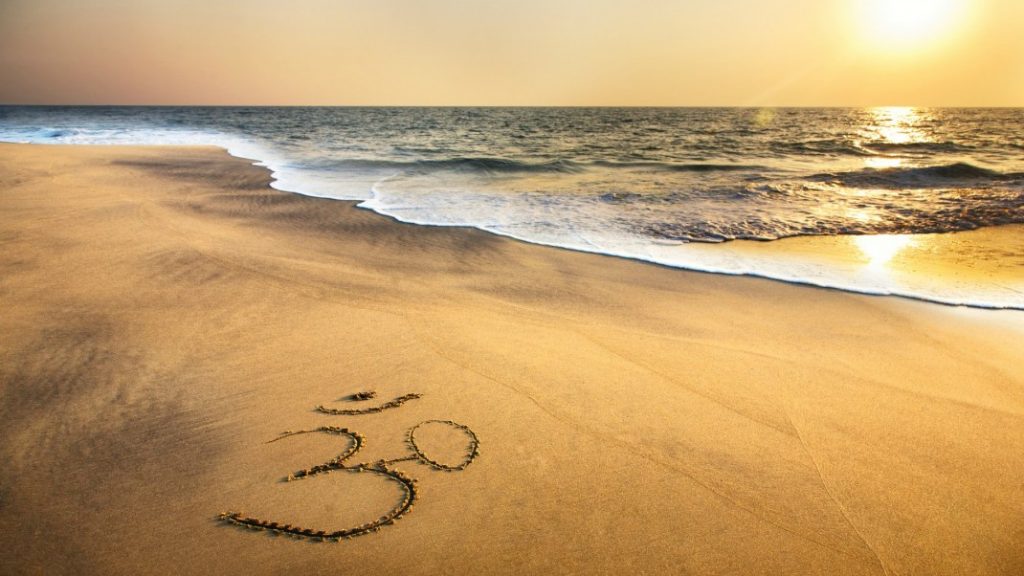[et_pb_section fb_built=”1″ _builder_version=”3.0.47″][et_pb_row custom_padding=”0|0px|0|0px|false|false” _builder_version=”3.0.48″ background_size=”initial” background_position=”top_left” background_repeat=”repeat”][et_pb_column type=”2_3″ _builder_version=”3.0.47″][et_pb_text _builder_version=”3.21″ background_size=”initial” background_position=”top_left” background_repeat=”repeat”]
Talk: Mind Your OM Business
– Br. Shankara
March 17, 2019
Click for NOTES & QUOTES from the talk (PDF)
March is a month for study of Karma Yoga, a spiritual path leading to the abandonment of selfishness. As a karma yogi, you practice offering your actions and their results, as well as your perceptions, thoughts, and feelings to the Divine Presence.
Even before fully knowing this Presence, you hold firmly to the belief that the Presence is within each person or other living being that you interact with or serve. Working and abiding in this spirit, you are increasingly able to release attachment to your activities and their results. This yields the freedom and contentment promised by Karma Yoga.
“Even a little practice of this yoga will save you form the terrible wheel of rebirth and death …” — Sri Krishna, Bhagavad Gita, Ch. 2
“There is no limit to the power of the human mind,” wrote Swami Vivekananda in his introduction to Raja Yoga, the swami’s translation of and commentary on Patanjali’s Yoga Sutras. That infinite power is our birthright, Vivekananda says — yet most of us have very little control of it.
Why is that? According to the teachings of Vedanta, it is because we yield our attention to the overlay of time, space, and causation (maya) that spontaneously arises when the Divine Power becomes manifest.
Maya dissipates our power. It fragments the eternal, the changeless, into an ever-renewing succession of good and bad experiences. Life becomes a house of mirrors — discontinuous, fundamentally illogical, often frightening. Is it any wonder that we grasp at anything that seems to offer some security, or ease our pain?
“There must be some way out of here,” Bob Dylan sang … ”There’s too much confusion, I can’t get no relief …”*
Don Juan Matus, a Yaqui Indian spiritual master, offered his student Carlos Castaneda a years-long series of lessons on a “way out of here.” He called the technique “stopping the world.” Castaneda chronicled Don Juan’s instructions in his book, “Journey to Ixtlan.”
In this talk, we explore and discuss several chapters of the book, and compare what Don Juan taught with the teachings of Sri Ramakrishna, Swami Vivekananda, and the sage Patanjali.
*From Dylan’s song, “All Along the Watchtower”
Note: There is silent meditation in the Chapel from 10:30-11am, before each Sunday’s talk. After the talk, devotees and friends meet in the Monastery from noon to 1:30pm, for tea, coffee, snacks and a continuation of our spiritual fellowship.
Spiritual talks and classes are open to the public and free of charge.
[/et_pb_text][et_pb_button button_url=”https://vedantaatlanta.org/audio-archive-of-past-talks/” button_text=”Talk Archive” button_alignment=”center” admin_label=”Button – Talk Archive” _builder_version=”3.16.1″ custom_button=”on” button_text_color=”rgba(255,255,255,0.96)” button_bg_color=”#9f4204″ button_border_width=”4″ button_border_color=”#d59952″ button_letter_spacing=”1″ button_font=”|700|||||||” button_icon=”%%372%%” background_layout=”dark”][/et_pb_button][/et_pb_column][et_pb_column type=”1_3″ _builder_version=”3.0.47″][et_pb_sidebar area=”sidebar-1″ _builder_version=”3.16.1″][/et_pb_sidebar][/et_pb_column][/et_pb_row][/et_pb_section]
